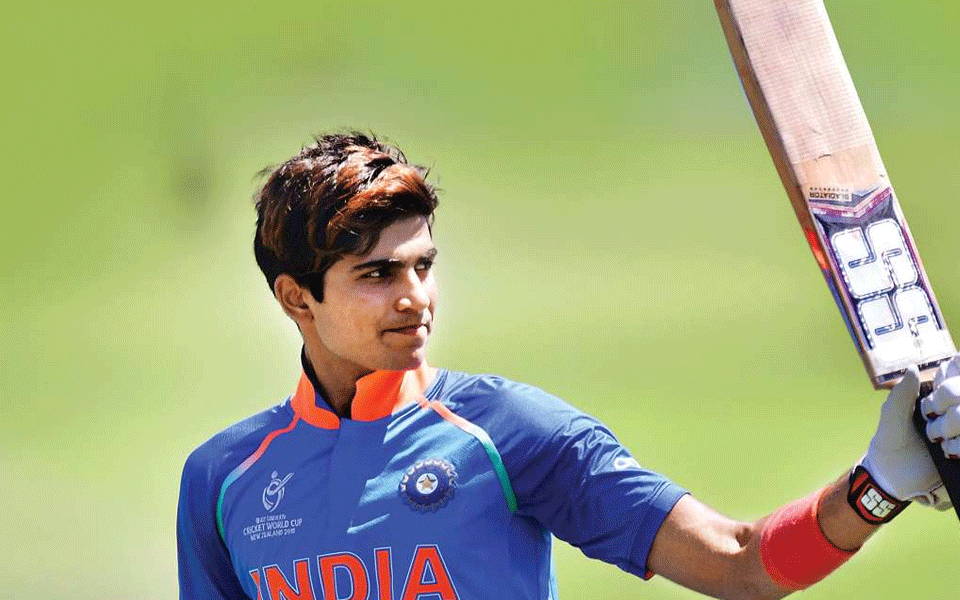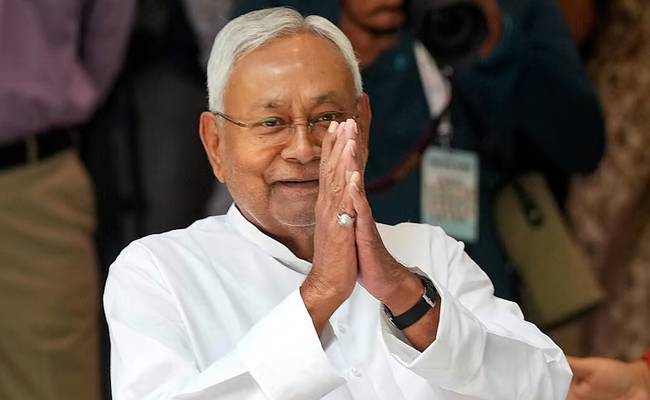New Delhi: Former India captain Sourav Ganguly on Wednesday questioned the omission of veteran Ajinkya Rahane and young Shubman Gill from the ODI squad for the tour of West Indies, urging the selection committee to be consistent with their policies.
An inconsistent Kedar Jadhav has been retained while Gill, who has been adjudged man-of-the-series in the five List A games in the West Indies, scoring 218 runs.
Ganguly took to Twitter to take a dig at the selectors stating the main agenda should be picking the best possible team and not making people happy.
"Time has come for Indian selectors to pick same players in all formats of the game for rhythm and confidence.. too few are playing in all formats ..great teams had consistent players ..it's not about making all happy but picking the best for the country and be consistent @bcci," Ganguly tweeted.
"Here are many in the squad who can play all formats ..surprised not to see Shubman Gill. Rahane in the one day squad," he added. Gill has already expressed his disappointment at not being picked in the squad for the limited overs series in the Caribbean.
The MSK Prasad-led selection committee picked India's squads for the T20I, ODI and Test squads for the tour of West Indies on Sunday.
Barring left-arm spinner Ravindra Jadeja, Kohli, Rohit Sharma and KL Rahul, no other Indian player features in all 3 formats for the West Indies tour.
Let the Truth be known. If you read VB and like VB, please be a VB Supporter and Help us deliver the Truth to one and all.
Mangaluru: Flight operations between Mangaluru and several Gulf destinations remain disrupted for the fifth consecutive day, airport authorities confirmed on Wednesday. The cancellations come amid ongoing airspace closures affecting the region.
According to the latest schedule updates, the following Air India Express flights have been cancelled for 5 and 6th March 2026:
Dubai–Mangaluru (IX 832) which was scheduled to arrive at 10:10 pm on 5 March
Mangaluru–Dubai (IX 831) which was scheduled to depart at 01:20 pm on 5 March
Dubai–Mangaluru (IX 814) which was scheduled to arrive at 04:55 am on 6 March has also been cancelled.
Mangaluru–Doha (IX 821) which was scheduled to depart at 11:20 am on 5 March
Doha–Mangaluru (IX 822) which was scheduled to arrive at 8:45 pm on 5 March
Mangaluru–Bahrain (IX 841) which was scheduled to depart at 9:45 pm on 5 March
Bahrain–Mangaluru (IX 842) which was scheduled to arrive at 07:45 am on 6 March
Mangaluru–Kuwait (IX 851) which was scheduled to depart at 10:00 pm on 5 March
Kuwait–Mangaluru (IX 852) which was scheduled to arrive at 08:50 am on 6 March
Mangaluru–Dammam (IX 847) which was scheduled to depart at 11:10 on 5 March
Dammam–Mangaluru (IX 848) which was scheduled to arrive at 09:25 am on 6 March
Mangaluru–Abu Dhabi (IX 815) which was scheduled to depart at 11:20 pm on 5 March
Abu Dhabi–Mangaluru (IX 816) which was scheduled to arrive at 08:15 am on 6 March
Meanwhile, operations to Mumbai, Delhi, and a few other cities from Gulf destinations are resuming in a limited manner. The Mangaluru–Muscat service by Air India Express continues as scheduled and remains unaffected.
The airline has also announced that it will operate additional flights between Muscat and Delhi and Mumbai on 5 March 2026, along with special services from Ras Al Khaimah connecting Delhi, Kochi, and Mumbai until 7 March 2026.
Air India Express will continue operating flights to and from Muscat on 5 March 2026, along with additional flights between Muscat and Delhi and Mumbai.
— Air India Express (@AirIndiaX) March 4, 2026
We are also operating special flights from Ras Al Khaimah connecting Delhi, Kochi, and Mumbai until 7 March 2026.
Guests are… pic.twitter.com/VvhWdcS8ud





